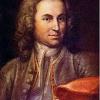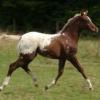-
Posts
786 -
Joined
-
Last visited
View Author Profile

Story Reviews
- No Story Reviews
Comments
- Rank: #0
- Total: 248
About J.HunterDunn

Profile Information
-
Location
The Netherlands
Recent Profile Visitors
5,687 profile views
J.HunterDunn's Achievements
-
Posted two years ago today. "At the rising of the sun and at its going down ..."
-

Auf Flügeln des Gesanges
J.HunterDunn commented on AC Benus's story chapter in Auf Flügeln des Gesanges
This first trashbin (a term that doesn’t do justice to its content; I would rather call it recycle bin) contribution pushes all my buttons (the positive ones that is). The Mendelssohn tune I became familiar with long before I could understand the language it was sung in. Later in life the song became part of the repertoire of my long deceased father. The languages (German and English) are both second languages to me, so I am privileged to enjoy both the original poem and your excellent “translation”. The quotation marks are not meant to demean your effort, on the contrary. They are meant to accentuate the enormous hurdles that have to be taken when you decide to undertake a task like you set yourself. The first task is to make a more or less accurate literal translation of the original poem. But is that at all possible? I do that with some of your own poems sometimes, when the deeper meaning is not immediately clear to me. In doing so, you discover that a more or less literal translation is not just substituting the words of the one language for the words of another one. While translating you are interpreting at the same time. This is demonstrated by the fact that several different translations in English of the Heine poem can be found when you take a bit of time to look for them on the net. The second task is while conserving the same rhyme-scheme as the original and keeping the same flow in the lines, to stay close to the meaning while preserving the mood of the original. You succeeded doing both, without it becoming smelly in the way Salieri meant. A very difficult task with an admirable result. As so often: chapeau, Al. -

author promotion GA's Newest Signature Author: AC Benus
J.HunterDunn commented on Renee Stevens's blog entry in Gay Authors Archive
So very much deserved, AC. I'm so happy for you ! Congratulations. -
Mmm, of course I agree with the above comments: a lovely poem ... at least the first six lines. They seem to form the complete poem. But then my problems start. That last intriguing line. If it would be identical as the opening line I would have been satisfied - an added accent to make a point. But it isn't, and I just can't assume it hasn't been done deliberate. So, I left it perculating in my head, but have not come up yet with a convincing explanation. An intended consequence?
-
... and I slipped in some Danmark promotion while at it ...
- 767 replies
-
- 3
-

-
- music
- classical music
-
(and 1 more)
Tagged with:
-
Always intrigued by these kind of explanations I did some more research. What I found is, that it was not Goethe (1749-1832) that made the faulty translation from Danish to German, but the German writer/poet Johann Gottfried Herder (1744-1803). He translated the Danish song “Elverkonge” and gave it the title “Erlkönigs Tochter”. Although I couldn’t find a date, all sources seem to be in agreement on the fact that this translation was made before Goethe wrote his "Erlkönig". Goethe knew both Herder and his poem. As a matter of fact there is some similarity in the first and last lines of both poems, suggesting Goethe was influenced by Herder: Herder: Herr Oluf reitet spät und weit (Lord Oluf rides late and far) Goethe: Wer reitet so spat durch Nacht und Wind? (Who rides so late through night and wind?) Herder: Da lag Herr Oluf und war tot. (There lay Lord Oluf and was dead.) Goethe: In seinen Armen das Kind war tot. (In his arms the child was dead.) Without the research I would never have learned, that the Danish composer Niels Wilhelm Gade (1817-1890) wrote music to the Danish folk-ballad “Elverskud”. Apparently a well-known composer in Denmark, I had never heard of the man (so sorry, Tim ), which crack in my education now is repaired. Please join me in enjoying the “Daughter of the Elf-king”: https://www.youtube.com/watch?v=mBk3rpSmnZQ
- 767 replies
-
- 3
-

-
- music
- classical music
-
(and 1 more)
Tagged with:
-
Hard not to get into a good mood with this music. Very energetic.
- 767 replies
-
- 2
-

-
- music
- classical music
-
(and 1 more)
Tagged with:
-
Another all-time favourite of mine. Both Schubert's haunting music and the poem by Goethe, that has so many layers and always leaves me in awe. The performance of this poem is a challenge for the singer. He has several roles to perform: the narrator, the father, the child and last but not least Erlkönig. Here are two links, one to the wiki-page that gives the original German text of the poem, a literal translation in English and a beautiful adaptation in English. The second link is the performance of Dietrich Fischer-Dieskau that gives me goose-bumps every time I hear it. Not singing, but just mouthing the last two words ("war tod" = "was dead") is such a find. I hope you'll be as taken with it as I am time and again. https://en.wikipedia.org/wiki/Der_Erlkönig
- 767 replies
-
- 5
-

-
- music
- classical music
-
(and 1 more)
Tagged with:
-
@Lux Apollo Even when the sun shines I will enjoy this. The temperament enhances the beauty of the music. @Parker Owens Unfortunately youtube wouldn't allow me access. As Bach adapted Vivaldi's music in several organ concertos I can only imagine what I missed. Here's quite something else I like to share. I was looking for the Scherzo of the Sonatina Op. 100 by Dvorak and found this performance. The obvious joy brother and sister Shaham have playing the piece I found refreshing. The Scherzo I was looking for starts at 7:40. Enjoy !
- 767 replies
-
- 2
-

-
- music
- classical music
-
(and 1 more)
Tagged with:
-

author promotion GA's Newest Signature Author: Aditus
J.HunterDunn commented on Renee Stevens's blog entry in Gay Authors Archive
CONGRATULATIONS, ADI, WITH YET ANOTHER COLOR ! -
It really was my mistake. I checked the two scores I have and they are the same as the youtube-score. At the end of K.9 there are five 1/16 and two 1/32 notes. I always played six 1/16th, skipping the b. Listening and following the score in AC's post I noticed my mistake for the first time. The oldest score I have was used while studying the sonata. My piano teacher had the habit of making a particuar sign in pencil at the end of a piece, when it was performed to her satisfaction. Although faded the sign is still there, so I'm pretty sure she didn't notice my mistake. So now I have to live with the burden of a lifetime of retrospect shame .
- 767 replies
-
- 3
-

-
- music
- classical music
-
(and 1 more)
Tagged with:
-
These admirably transparent performed sonatas were a joy to listen to indeed. It brings back happy memories of the weekly visits of my piano-teacher when I was a schoolboy. After all those years I discovered a mistake of mine in K.9, that she seemed to have missed, and thus I still make today. Time for a pencilled exclamation mark in my copy.
- 767 replies
-
- 2
-

-
- music
- classical music
-
(and 1 more)
Tagged with:
-
Happy Easter everyone. Lent being over, Bach was allowed to use instruments again, that were associated with festive occasions: copper and timpani (you’ll look for the use of those in vain in any of the Passions). Easter being an important Christian feast, it needed festive music. As so often (and was an established custom for composers in those days) Bach re-used parts of an earlier work for his Easter Oratorio (Oster-Oratorium), BWV 249, probably first performed in 1736. The oratorio is based largely on a cantata he wrote for the birthday of Duke Christian von Sachsen-Weissenfels on February 23rd , 1725, which is also known as the “sheperd-cantata”, BWV 249a. Part 1 (Sinfonia) and part 2 (Adagio) are exactly the same in both works. I found a live performance that I fell in love with. For the diehards who will listen to the whole oratorio there are English subtitles for the vocal parts. But please take the time to at least listen to the first two parts, which are for orchestra only. The performance of the oboe solo (Mr Ponytail) in the second part stole my heart. Also note the sandaled foot of the first violinist, tapping away with gusto. I hope you enjoy it as much as I do. https://www.youtube.com/watch?v=a5ICH1gK5fQ
- 767 replies
-
- 3
-

-
- music
- classical music
-
(and 1 more)
Tagged with:
-
@northie For nostalgic reasons I still prefer Harnoncourt's passions. Mostly for the use of all male singers (an aesthetic preference, nothing to do with me being gay). Sadly my Harnoncourts are on vinyl and worn by use. The Herrewege performance (on CD) is the one I listen to most these days.
- 767 replies
-
- 2
-

-
- music
- classical music
-
(and 1 more)
Tagged with:
-
Today I've been like a kid in a candystore. At one point in the past I stopped following this thread, because the longer the thread became the longer it took to load the page on my now retired computer. I'm not an impatient person, but waiting five minutes or more to be able to see what was actually posted became a bit much. So today with my new equipment and a much faster internet connection I tried my luck again and have been listening for hours to all your contributions. Thank you for all of the delights (mostly) unkown to me. Preparation for Easter always involves the Bach passions for me. Here's an aria from the St. Johns Passion, one I performed roughly half a century ago myself, and -oh profanity- often still sing when working in the garden. The uplifting rhythm makes work go faster.
- 767 replies
-
- 4
-

-
- music
- classical music
-
(and 1 more)
Tagged with:


















